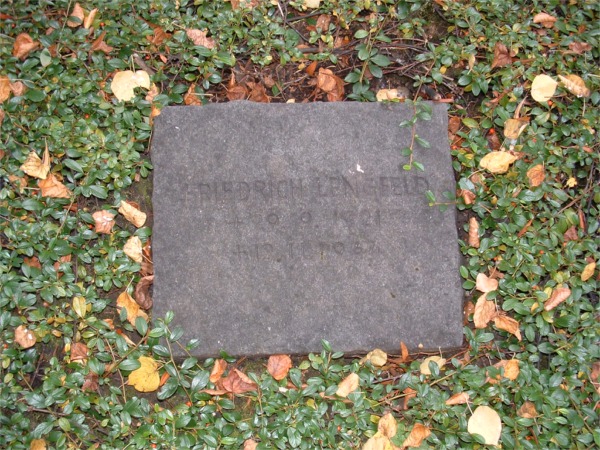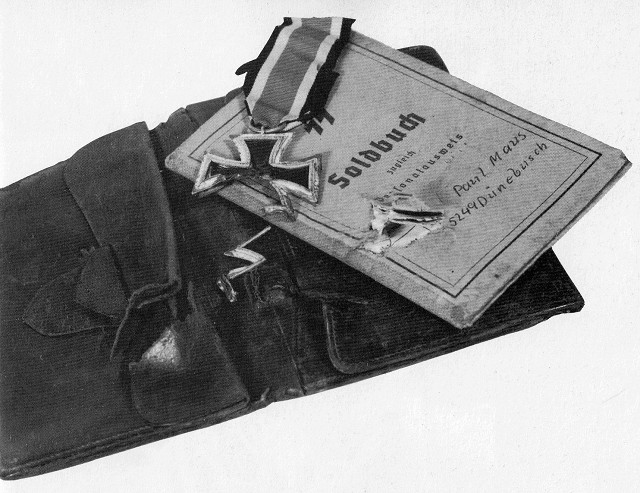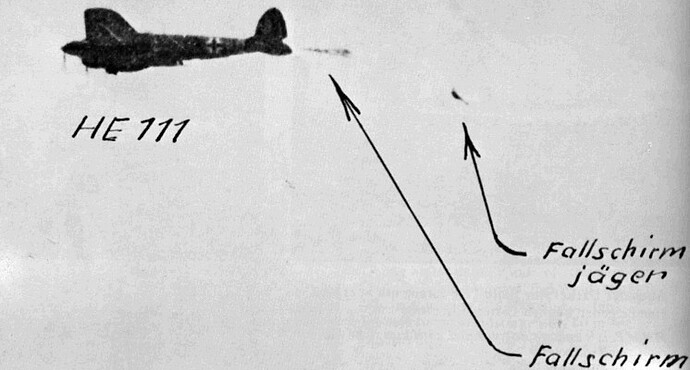Here is a short story from the days of Operation Market Garden:
On 20/09/1944 we watched some of the 82nd Airborne landing on Dropzone “N” south of Groesbeek in the Netherlands, from the dike along the river Maas (Meuse) approx. 2km’s away from the action. After about 30 minutes too much firing came our way as planes and gliders continued to pass right over us. Some of the planes were on fire and crashed. Back to the cellar for protection. The next morning two para’s came to our town. (They actually had jumped after their Dakota had turned around.) Later that day two very tall para’s were spotted walking towards our town but across the river. Several Underground men then took a rowboat across to pick them up. After meeting with several more Underground men -including my Father- they were rowed back across the river to return to their unit. No sooner had they started to walk back, a German patrol spotted them. Luckily for them, the rowers noticed their plight, and they rowed back to shore to retrieve the para’s. When in the boat again, they rowed with everything they had to escape the firing from the Germans that by then had started. The para’s then decided to dump all their equipment overboard to lighten the load, and they eventually landed safely on our more friendly shore. The two returned to their unit via another route the next day. In the nineteen-eightys, while diving for evidence of remnants of a Roman bridge, one of the divers found a knife on the bottom of the river, which later was positively identified as a special improvised knife carried by some of the para troopers to cut their lines should it be necessary. As no other paratroopers were known to have crossed the river, it is certain that it was one of the items discarded by the two tall Americans while fleeing from the Germans!
2nd Lieutenant Friedrich Lengfeld (*September 29, 1921; +November 12, 1944) was a company leader of the 2nd company/Füsilierbataillon of german 275. Infanterie-Division.

Lt. Lengfeld was mortally wounded on November 12, 1944 during an attempt to rescue a wounded G.I. from the minefield “Wilde Sau” (wild boar) in Hurtgenforest.
Hubert Gees from Salzkotten/Eastern Westphalia was a soldier in Lengfelds company by the time of the incident. He reports:
“With Lt. Lengefeld I lost the best superior I ever had. In the previous hard weeks he meant much to me and gave me a lot of inner strength. He was an exemplary company leader and he claimed never more from us as he was willing to give by himself.
Led by him I was on patrol straight into the american forward outposts. When the american observation ammunition detonated on trees with a flogging bang and we got the impression that the enemy broke into our positions he never said “Go and check” but “Follow me”.
On November 12, 1944 when the soldiers of the 12th US Infantry Regiment had re-taken the forester’s house of Hürtgen just to lose it again in the forenoon, our company severe loss.
In the early forenoon an obviously heavy wounded G.I. was crying for help in a beseeching way. He was lying in the middle of the minefield “Wilde Sau” at the edge of the embankment of the eastern side of the road, in no man’s land. My Co, Lt. Lengfeld, sent me to our MG position to deliver the order “not to shoot if american corpsmen will show up to salvage the seriously injured”. Since the heartrending cries for help lasted for hours Lt. Lengfeld ordered our corpsmen to put together a rescue squad. This must have been around 10:30 am.
Lt. Lengfeld went on top of the resque squad on our side of the road. The road itself was secured with anti-tank mines whose positions were relatively easy to locate. Just when the Lieutenant wanted to change the side of the road approaching the G.I. he was taken down by an anti-personal mine. In a great hurry he was taken back to our command post to be given First Aid. Two holes in his back with the size of a coin suggested severe internal injuries. Lt. Lengfeld moaned in great pain. Led by a lightly wounded NCO he was brought back to casualty station “Lukasmühle”. The same evening he died from his severe injuries on the main casualty station at Froitzheim”
Today Friedrich Lengfeld is buried on the cemetery in Düren-Rölsdorf.
On the military cemerery in Hürtgen the only memorial for a german soldier has been erected by the former enemy for Lt. Friedrich Lengfeld:



That’s a cool story flame, thanks for posting. I see you even got pictures of the grave.
Right, bro, a little dismal sight for a “hero’s” grave, isn’t it?
Yeah it is actually. Did they install the memorial plaque close to the grave at least so peopl might pay respects? (the others should get respect also).
The memorial is actually on another cemetary (at the village of Hürtgen, one of the two german main cemetaries of the battles in hurtgenforest), about 4 miles away from Lengfelds grave,
A poster from Russia uploaded this one on the picture site. Somehow there was not much of feedback to it there but I find it too interesting to be ignored completely.
The poster called it “The Prediction. 1952”. These sheets are supposed to be found by a woman called Galina Belevich from Chekanovskiy in the abandoned POW camp “Ozerlag” for german and -mostly- japanese soldiers near the city of Bratsk in Siberia.
Unfortunately it’s quite difficult to read but I’ll translate what I am able to decipher:
“Written on July 2, 1952.
Camp 043, July 2, 1952.
Prediction
Communism will cease itself in the years 1952 -1955. Stalin is going to die in the year 1953, in the month of March, 4th or 5th (Stalin actually died March 5, 1953 - FTG). His friend, the commander of the camps, B. (= Lavrentij Pavlovič Berija - FTG) will also be sidelined…powerless. The overthrow in Czechoslovakia and the side changing of Tito was foreseen by me in dreams. A. K. (? - FTG)”
Great story Flame,
War can also bring out the best in people…
It would be interesting to know if the American soldier that Lt. Lengfeld attempted to rescue survived or if he also died from his injuries.
Thank you, George.
That is indeed an interesting question. I just re-directed it to the Twenty Second United States Infantry Society.
I hope they’ll answer and are able to give that precious information!
Indeed, it is! There are many heroes on all sides who just like him were buried in inconspicous graves amidst anonymity. There are many who probably lie somewhere, in foregin lands, with nothing marking their resting place. It is a very unfortunate aspect of war and a very sad one. The story is a very nice one, though, and one that I wasn’t aware of. Thank you so much for sharing it! I’m glad that his sacrifice was at least recognized by the Americans.
The prediction is rather interesting, especially assuming that it was written by a German POW. Tito’s views were indeed very independent and, in spite of being a communist, his regime was known for having big differences with other communist countries. He remained fairly neutral during the Cold War and didn’t accept Stalin’s attempts to control him. So, obviously, the person who predicted this was right on the money with that. Of course, communism as a whole didn’t cease in 1952-55 and the Cold War was already at work., although it would have been nice to see communism end then. The prediction about Stalin’s death is quite remarkable as well.

The little story behind this memento:
“I belonged to the 13th Company of Panzergrenadier-Regiment 25 of the “Hitlerjugend” Division. After the first battles in Normandy, where we occupied a position in the Ardenne monastery, we, together with a light infantry gun platoon, were attached to a reinforced company, Battle Group Schrott. One evening we were called to the commander and six of us received the Iron Cross 2nd Class. I wanted to send it home but did not get round to it for some reason or other. I put the Iron Cross in my wallet which I always carried in my back pocket. A few days later, we had to repulse an Allied bridgehead. I was at that time leading the Signals section of the light infantry gun platoon. After starting to attack by the first houses of a village, the attack was then brought to a halt by artillery fire from which I got a shell splinter in my shoulder but which was not serious, and another one on my wallet directly where the Iron Cross was. I later lost the splinter. Getting out of this critical situation was difficult with healthy legs but with shot-up legs perhaps impossible. After this incident I was convinced that I should return home from the war.”
by Paul Maus in “Wenn alle Brüder schweigen”
Hello.
Ummm…
This is something like navyson’s post, in his WW1 thread Unusual Events/Uncommon Valor, where someone goes out into no man’s land to help another human being. I wanted to post it there but according to navyson this is apparently the right place. If this is not the type of story that belongs in this thread please forward all negative comments to navyson.
I’ll tell you a story and this is all you ever need to know about
war. We were at Ortona and there were places where their lines
and ours were fairly close together. Ortona is in Italy, over towards
the Adriatic side. There was some terrible fighting there.
we’d send out patrols, they’d send out patrols. At night. If
we got a chance, we’d grab a couple of them if we met, ambush,
and they’d try the same. Or we’d try and knock a few over, and so
would they. Or, and this happened, almost by gentlemen’s agreement,
we’d pass by. Like ships passing in the night. Nobody
wanted to kill that night.
One night we had two patrols out and we knew they did,
and about two in the morning we hear this terrible screaming. It’s
a guy screaming. On and on. I’m sure you could hear it for miles.
Up and down, high and low, screaming, screaming. I can hear it
now. Our lieutenant is with us and he says, “The poor bugger’s
taken some in the belly.”
Now, I’m telling you this. It went on for two hours and it
seemed like ten. You see, we thought he’d die. Not often did they
last that long. But this one wouldn’t die.
Finally a guy says he’s going out there. He’s an Indian, and
I think he was from around Cochrane, near Calgary, or maybe his
name is Cochrane. An Indian-he gets killed about a month later.
Anyway, the lieutenant doesn’t say anything and so this Indian slips.
out and Jeezus! it is one dark night and I ask the lieutenant if we
should ask for a couple of flares, just to help him, and he says no.
In about fifteen minutes, all of a sudden the screaming
stops. Just like that. Like shutting off a tap. A light switch. In
about five minutes this Cochrane comes back and he says, “Damn
it to hell. What a shitty way to earn a living.”
The sergeant after a while asks who it was out there, and
Cochrane says he doesn’t know. Well, was it one of our guys?
Cochrane says he doesn’t know. Was it a German? He says how the
hell should he know.
Then-and you might not think there are some very
moving moments in a war in the mud and wet and shit-but
Cochrane says, “All I know was that there was a dying soldier out
there and I just put my hand on his forehead and said a little
prayer and then I put the knife right into his throat. I was just
helping a poor soldier along the way.”
A unique document of a rare jumping accident: On jumping out of a He 111, the jumper caught on th tail wheel of the machine when his chute opened. The jumper was carried hanging by his chute behind the plane and nobody on it could help him. A rope of ripcords wound together was pulled up higher by the air than the jumper could reach. Finally a second machine, an old two-engined Dornier 23 with a large and open cockpit in the middle was flown underneath the jumper. The crew was able to hold the man, cut him loose and pull him into the cockpit. He was lucky to be alive.
Impressive flying on the part of the Dornier 23 pilot. Were the Fallschirmjägers not equipped with a reserve chute as the American Paratroopers were?
I read a story in a 1945 issue of life magazine about a soldier who was declared dead, his wife remarried, and you guessed it he showed up home when the war was over. What a bummer!
I know an other story about love during WW2…
It is told by RKKA infantry man Boris Petrovich Yzovchak : http://www.iremember.ru/content/view/696/2/lang,ru/
"I remember an incident that occured on our floor while I was in the hospital in 1942. There was a guy who lost both legs. I think he was wrom Siberia or Ural region. In one word, his wife came to visit him. But it seem he did not inform her of his condition, because when she saw him she immidiatly said:
- It is all over. I have to find a new huband.
-
Well, as you wish… just kiss me farewell…
She leaned over to him and the guy bit off her nose… - Now, you can go and get your self a new husband."
That happened to Captain (later Lieutenant Colonel) Speers of “Band of Brothers’” fame. He married a British Widow only to find out later that her husband had been captured by the Germans and not killed as she had beend told. She went back to him after the War and Speers’ marriage was annulled. I guess he took it pretty well and they were on good terms as he continued a relationship with their children and he was even considered to be an uncle by the other guy’s children…
the Trigger story brings to lite the faulty torpedoes the Americans used. it turned out to be a weak firing pin. also Running depth and the magnetic exploders problems. but it took the Navy a long time to convice the manufacture they were at fault. they, in turn, insisted the fish were fine. the sub crews didn’t have enough courage. this argument almost started a seperate war.
Judgment
“It is sadly true that each modern torpedo type sent to war by the United States Navy was defective. … The failure to test this crucial weapon prior to hostilities created the greatest technological failure in the history of American military.” – “Fire in the Sky” by Eric Bergerud.
Here’s a story which never made the papers, but is true nonetheless. A British Army WO, wounded in the leg, mans the Vickers to cover his company’s withdrawal outside Dunkirk in 1940. Taken prisoner, spends the rest of the war in a POW camp. A 6’3", 203lb (14.5st/92.3kgs) heavyweight boxer, he is reduced to leopard-crawling to the back of the German staff kitchen to retrieve potato-peelings to supplement starvation rations. He returns home at war’s end a sick, embittered man, weighing 140lbs (10st/64kgs) … to find his wife has set up house with a well-fed young Italian POW. Mayhem ensues: even in his starved condition, he is still able to throw the Italian boy out of the house. A week later, he breaks his brooding silence to tell his wife he forgives her. Their marriage is repaired; he becomes a successful businessman, and they stay together till the end (both now I think deceased).
Cheers,
Cliff

